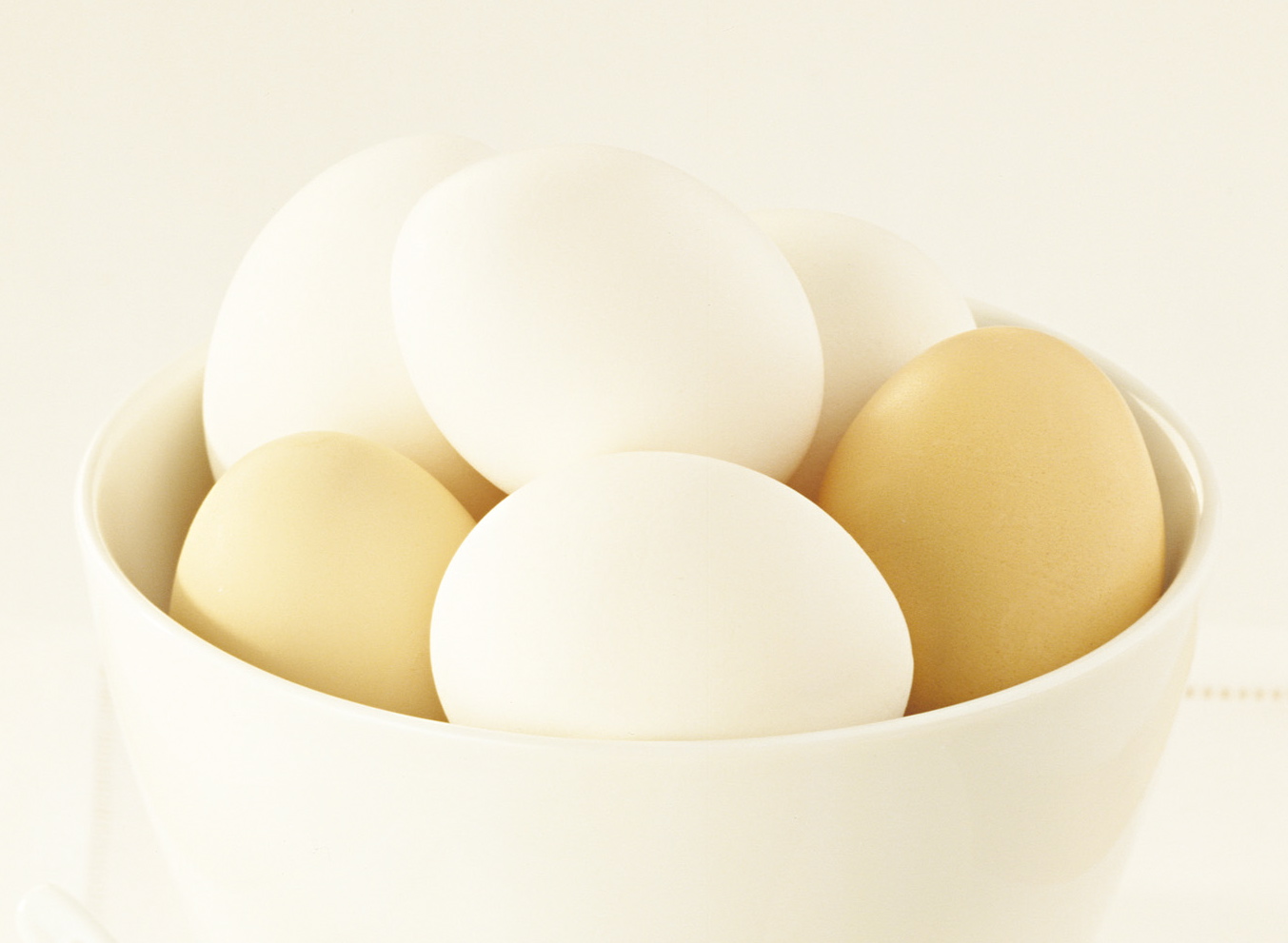Egg Shells 101

Did you know......?
- The colour of an egg shell depends on the breed of hen that laid it. It has nothing to do with quality, freshness or what the hen eats.
- Egg shells are mostly composed of calcium carbonate plus some magnesium carbonate, calcium phosphate and other organic matter, including protein.
- If you leave an egg sitting in vinegar, within a couple days the acid will dissolve the calcium in the shell. The skin or membrane of the egg will be left to hold the egg together.
- There are approximately 10,000 tiny pores in the shell of an egg. As an egg ages, these pores allow moisture and carbon dioxide to move out of the egg and air to move in. Over time, the air collects at the wide end of the egg. (If you hard-cook an older egg and then peel it, you'll likely find evidence of this air space. The wide end of the egg will be flat because of the air in the egg.)
- Odours can be absorbed through the pores in the shell, so eggs should be stored in their carton in the fridge and kept away from strong-smelling foods such as onions or fish.
- The strength of an egg shell is affected by the quantity and type of minerals and vitamins (such as calcium, phosphorus, manganese and Vitamin D) in a hen's diet. For example, if the hen isn't getting enough calcium, she will lay thin or soft-shelled eggs or, on rare occasions, an egg with no shell at all!
- The thickness of an egg shell is related to egg size, and egg size is related to the hen’s age. As a hen ages, egg size increases. But the same amount of shell that covers a smaller egg must be stretched to cover a larger one. This means the shells of larger eggs are thinner than those of smaller eggs.
- The shell accounts for 9 to 12% of an egg's weight, depending on the size of the egg.
- Together, the two halves of a large egg shell will hold about 1/4 cup (60 mL) of liquid.
- Crushed egg shells can add valuable nutrients to soil. The calcium in the shells will help plants grow. Just be sure to crush the shells before you add them to your garden, otherwise they will break down very slowly. (Same advice if you're adding egg shells to your compost!)